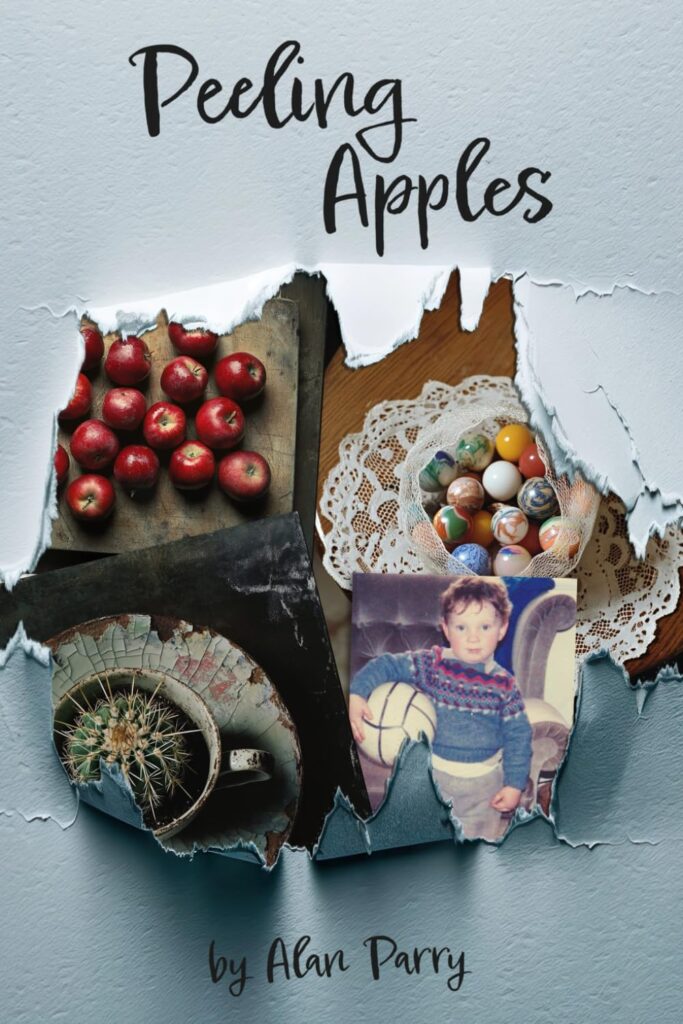Welcome to Alan’s author page. Here, you will find a comprehensive library of his published materials, both online and in print. Explore links to his latest poetry, flash fiction, and other literary works.
day is failing,
November
the green-pickle hedgerows drip,
wet with rain & streetlights flit to life
illuminating the sleek, dolphin-grey pavements
You’ll find hedonism here perfectly framed flashbulb moments of jazz
Ankh Spice – The Water Engine
nail fallen crowns to the walls
Tenets
& chance will have you king

What I’d give to have unleashed a colony of gulls on them when they least expected it, to have had the power to command the birds.
Ghost Train: Next Stop, Nowhere
Parry’s poems are truly graced with echoes, the sharp blades of stars, butterflies, and the glow of sunrise over the desert.
Jack B. Bedell – Ghost Forest
Selected Poems & Fiction
House-Plant / Remorse / Grief Lust Music / Off Limits / Apollo 11 / Office Job / Children / Idol / Snowdonia / Muse / Maturation / God / Lord Street / Office Job / In Havana / Winter / Troughs Christmas Eve / Majorettes / Darkness / Brill-Building Pop / Liverpool Street / Solemnities / Anamnesis / Apple Gin / Border Towns / Human Film / After the Rapture / Sundown / Figs / A Dog is a Dog, For All That / I Dream / My Men / You Really Shouldn’t Have / Mother of Seas / Ghost Train: Next Stop, Nowhere / Boy / Neglect is a Death Sentence
the night brings grief/lust/music
grief/Lust/Music
Dusty in Memphis
I pour whiskey another
sitting in shadows anchored by thoughts
desperate for relief knowing the curves of your hips by memory
There is a depth of musicality in Alan Parry’s debut
Mari Ellis Dunning – Pearl & Bone

Alan Parry is a poet, playwright and editor. He is the co-founder and editor of Broken Spine Arts, a poetry and arts collective based at the coastal edge of North-West England. This is his first major prose work. Peeling Apples is published by DarkWinter Press, Ontario Canada, a specialist publisher of “outstanding novellas”.
In Peeling Apples, Alan has written a sensitively drawn novella told in the simple and direct style that immerses us in the urban neighbourhood and everyday setting of Martyn, a child of the 1980s. It is a tender account of the coming together of Martyn, our narrator, and his Nana’s next door neighbour in a brief episode of abrupt change.
Martyn’s world is revealed to us through his eyes and ears; what he notices and what matters to him. We build our picture like the details drawn in a school sketch pad. It is a deft rendering of a his habits and haunts and the hooks of familiarity. His milieu is a tactile web of sense markers and signposts, the waymarks of daily certainty and stability. Yet we are also being given a sense of his world being redrawn out of the predictable. We thrive on routine, yet we must also learn to accept unpredictability and the imperfect containment of our lives.
When Martyn meets Mrs Joyce, she becomes an avatar to a different understanding of life; the personification of someone outside his known orbit; someone transformational in moving the needle of his emotional compass, and the beginning of an understanding of the complexity and frailty that accompanies growing up. We read about the contrast between the neatness of Nana’s home, with the garden of her neighbour Mrs Joyce, “her thick greying hair…like wild corkscrews” and “her back garden…wild, just like her hair”.
In the Jewish practice of Tachlikh, an apple is peeled to symbolize the releasing of negative energies or old habits; to become something different that will feed our maturing lives without losing our nature. Here is the striking resonance with Peeling Apples, where the skin of our innocence is lost to the reality that confronts us all: the connections and bonds we form that inevitably we must lose in the awakening of our emotional growth.
Woven into the story is an unfolding of openness between Martyn and Mrs Joyce, a willingness to be vulnerable; a contrast to the order and formality and few words at home. Through her, Martyn is introduced to a different rhythm of life through their afternoon conversation and disclosures, while the distracting enabler of TV wrestling and baseball plays out.
Following an accident, we observe a reversal of roles: the independent but needy Mrs Joyce becomes the carer for Martyn’s missing needs, of his parents’ distractions and long work hours away from home. Mrs Joyce is now his guide, he her follower, until tragedy hits hard and blunt rage becomes his proxy to express pain; railing at something no longer there, precious bonds severed, Martyn adrift without the words to help him.
Peeling Apples is essentially a love story: Mrs Joyce’s love for the child she lost, and Martyn’s love for the mother he so rarely has time to bond with. Thus he gains the attachment and comfort he does not realise that he needs from outside the family, someone he can begin to open his heart to through the developing friendship that feeds apple-soft emotional needs. Both are friends in need, their chance encounter forging a short and special love of seeing a need in each other, and responding to it with openness and compassion.
Review: Glenn Barker




